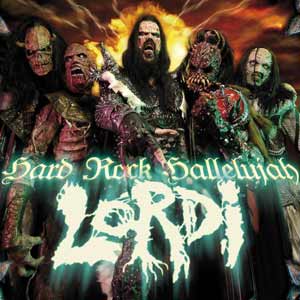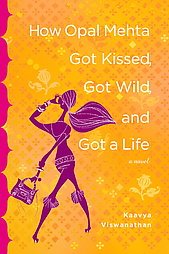 If you want to know what makes Europe tick, watch the annual Eurovision Song Contest.
If you want to know what makes Europe tick, watch the annual Eurovision Song Contest.Way before reality shows, Europe already enjoyed its own version with this music event.
Since 1956, it’s one of the major European events –aimed at bringing different European cultures together.
Participants use it as their jumping board to international fame and fortune.
Apart from Abba, no one has been successful.
To represent a country, you can be a non-citizen (not unlike players in major league soccer) or even (gasp!) American, but the country itself must be a member of the European Broadcasting Union.
In short, all European countries (and Israel) join in the festivities.
In the Cold War days, before the fall of the Iron Curtain, Western European singers had to sing in their native tongue.
Needless to say, Anglos won a lot more times than singers belting out ballads in Norwegian, Swedish, Finnish, Dutch, or Hebrew.
A few years ago, they changed the rules and everybody can sing in English. Hurray!
The fun part is not the singing, but the voting. You see, if you want a crash course in European history, politics, and sensibilities – The Eurovision is the show to watch!
Germany, for obvious reasons, would end up with nil points, Portugal would give 12 points to Spain, and vice versa, the Benelux countries would vote for one another as would the Scandinavian countries.
Once the Central and Eastern European countries could join, there was an additional problem.
Too many countries – the live show would take forever! Since the whole shindig has to be over in 3 hours, they limited the contestants to 24.
Last Saturday, the 51st Festival took place.
And what a party it was, broadcasted on television, radio and Internet.
Greece was the host this year.
You see, once you win the contest, the country you represent is punished by having to host the next one.
The Greeks were happy though; they could reuse the Olympic facilities they built for the 2004 games.
The best channel to watch the event on is the BBC – its presenter Terry Wogan (who is an old hand at it) is wickedly funny and very non-PC.
One of his best remarks was “don’t mention the marbles”
(European History Lesson #1:
The Brits took/stole/moved the Elgin Marbles out of Greece during an archeological dig at the beginning of the 19th century and have been refusing to give them back ever since.
Even movie star and Minister of Culture Melina Mercouri unsuccessfully tried to convince the lime users that they should be a good sport and return them pronto).
I will give you my impressions – feel free to blog your reactions (do not send hate mail; the cat will eat it and throw up).
The concept is simple: song, commercial about the hosting country, another song etc. (24x in total).
After this feast for the eyes and ears, residents of each member country can “televote” for their favorite.
Points are awarded from 1 to 6 (nobody pays attention to those) and then jump to 8, 10 and 12 points. Votes are announced by a local celebrity, who takes the opportunity to promote him/herself or his/her country, showing off their language skills in the process.
The winner performs the winning song again and gets stink drunk.
(European History Lesson #2).
The Greek presenters were a young, goodlooking couple bearing an uncanny resemblance to the main characters of Will & Grace.
The female half had the annoying habit of calling everything and everyone “amazing” so I guess her name is Amazing Maria.
Overall, it seems that the Greeks told people to wear white or get lost.
More than half of the outfits were in different shades of white. Considering that the settings and lightning were gorgeous, not such a bad concept.
Between the songs were small commercials of the Greek Tourist Board.
You know what I mean – blue sea, happy people, food, drink, you name it.
Each commercial started with a gorgeous girl with long wavy hair and some blue fabric in the background floating in the wind. It looked so much like a fabric softener commercial that I promptly remembered to turn on my washing machine.
One of the first songs was performed by a Britney Spears clone from Moldova.
Sparsely clad, she chanted “moca, rocka, choca” several times. Oh what a blessing that she could perform in English!
Spain tried to cash in on “the Ketchup Song” success of 2002.
The four Ketchup sisters were dressed in red (what else?) and sitting in office chairs.
There were two amazing dancers performing some non-related modern ballet.
Their song (for reasons unclear to me) was called Bloody Mary.
I don’t know if it related to a) the drink or b) Queen Mary.
(European History Lesson #3: King Henry VIII’s elder daughter was a staunch Catholic who eliminated subjects with a different faith. Hence her nickname “Bloody Mary”)
Germany shocked the world with its version of a country & western song.
The lead songstress was dressed in a Barbie pink dress with feathers. She acted like a five-year old, despite pushing 30.
Well, if the Germans have country & western, we can bring back the twist.
At least, that is what the Danes must have thought.
Five Paris Hilton look-alikes were singing about the twist while a handsome guy twirled around break dancing. Go figure.
(no European History Lesson there!)
Favorite Russia sent a Ricky Martin/Robbie Williams look-alike.
Dressed as Marlon Brando in “A street car named desire”, he performed a song claled "never let her go" that sounded uncannily like a Ricky Martin song. Lawsuit, anyone?
For reasons unclear to me (State sponsoring may be?), he was surrounded by several graceful Swan lake ballerinas.
Half a ballerina was sticking out of a piano, which is a shameful waste of one gorgeous ballet dancer and one perfectly nice piano.
Macedonia decided to send a Fran Fine look-alike surrounded by your average MTV video dancers. Boooooooring!
Lithuania obviously had some management training or other.
Six business suits kept repeating: “we are the winners of Eurovision”.
(No such luck - Finland took the grand prize!)
It sounded like a soccer chant – including megaphone.
The United Kingdom was represented by what sounded like the cast of “Annie”.
The girls were dressed in skimpy schoolgirl uniforms –very passé as Tatu and Britney Spears can tell you.
The only redeeming feature was the excellent violin player in the background.
Host country Greece featured an Anastacia-look alike, nicely dressed in black pants and a designer variation of the famous peasant blouse.
She was one of the few that didn’t come with lots of gimmicks, background dancers and the like. For that alone she should have come in 2nd.
The most surprising entry was victorious Finland.
In a contest were the majority of the songs are copycats of MTV/VH1 successes (last year, it was one Latino song after the other), the Finns decided to go heavy metal.
The band, called Lordi, consisted of one singer, two guitarists, one keyboard player (the only chick) and one drummer, all of them dressed in full costumes and monster masks.
Think KISS going Klingon and you get the idea.
What can I say? It worked for me (being a hard rock and SF fan) and lots of voters as well.
The best part was when the lead singer unfolded his huge bat wings.
Wow, Worf would have been so jealous!
One of the guitarists imitated the tongue movements of Gene Simmons, with limited success.
The Greeks provided a fitting pop concert background, including fireworks.
Following the popular trend, the Ukraine also sent a Britney/Madonna copy in a tacky outfit and she was (guess what?) surrounded by dancing Cossacks (in red this time, and not white).
Ah, La Belle France….
Being it’s arrogant self, France stubbornly stuck to its mother tongue thus neatly ruining its chances.
Keeping in line with the Dress Code, the chanteuse was dressed in a white Grecian style frock, belting out a chanson (of course) accompanied by an excellent cellist. (He should hook up with the violinist of the Brits).
The Irish representative also went for a sentimental song.
The best feature was his resemblance to Colin Farrell, which was a nice change from all the Britney/Madonna/Anastacia clones.
Sweden tried to copy its Abba success of decades ago by sending a clone of the dark-haired female singer.
Even her outfit looked like it came out of the Abba wardrobe – gold overalls with a blue train that put the one on Princess Diana’s wedding dress to shame.
The poor dear looked like she was performing in a Fellini movie.
Turkey obliviously ran out of the most popular clone models and settled for a Donatella Versace look-alike.
At least she had the guts to sing in Turkish, which earned her 12 points from several countries (more about that later).
No contest without an icon, so during the voting break, Amazing Maria and poster boy schlepped Nana Mouskouri on stage.
After telling everyone that there “are no losers, only winners” she left the stage without singing.
This was only fair, considering the quality of the performances.
After the 24 songs were performed, it was time for the 37 voting countries to cast their votes.
During this intermission, the Greeks put up a bewildering show that somehow should have represented Greek history throughout the ages, but consisted mainly of a colorful chicken dance against opera music.
Once the votes were in, the real fun started.
You see, it went like this:
- The Russian Block, the Baltic Block and the Balkan States mainly voted for each other with the top votes (10 and 12) for Russia (you never know what will happen in the future!) and Finland (you never know if the Nokians will invade the Baltic).
- The Nordic Countries voted for each other (Norway gave 12 points to Denmark; Iceland the same amount to Finland).
- Portugal and Spain must having a tiff – they didn’t award any points to each other. Mmmm, something rotten in the Iberian Peninsula?
- Ireland gave 12 point to the UK and vice versa. Surprise, surprise!
- Malta and Cyprus gave top honors (and points) to host Greece.
- Andorra didn’t want to rock the boat with its powerful neighbor and duly awarded 12 points to Spain.
(European History Lesson # 4: don’t mess with your neighbors if you are a tax haven) - The Netherlands and Germany gave 12 points to Turkey thanks to the millions of Turkish immigrants in these countries.
- Russia received 12 points from Israel, where there are 1M. Russian immigrants in a country with a total population of 6M.
The 37 jury representatives of the voting countries presented a nice sideshow on their own.
Why not grab your 5 minutes of fame when you can?
The Dutch guy, who gave “dressing down” a whole new meaning, was heavily hitting on the male Greek host. He even gave his mobile phone number on air, so I sincerely hope that the idiot was spammed with heaps of obnoxious sms messages.
Belarus had a Victoria Beckham look-alike (with glasses) announcing its results.
One of the countries that didn’t survive the semi-finals happily announced that it will be the winner next year. (That will speed the voting in 2007 up!)
But Macedonia stole the show: the jury guy started serenading Amazing Maria.
(European History Lesson #5: Not since since Alexander the Great did a Macedonian show so much goodwill towards Greece).
So you see, European history is fun! And it repeats itself, every year.
See you in May 2007!

